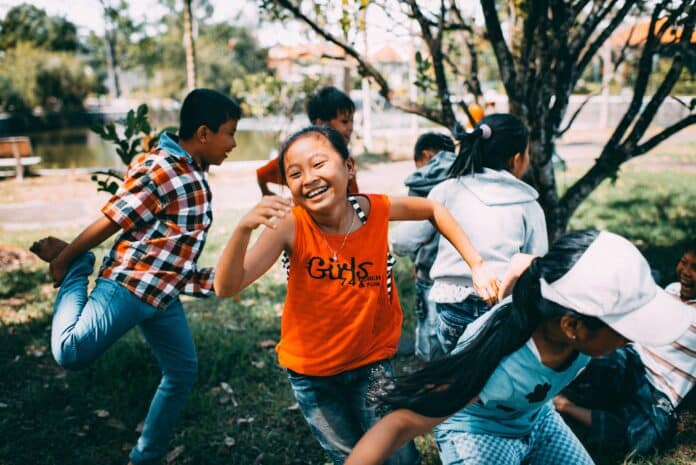There are an extraordinary number of today’s children who are single children in the family. Since the great depression, there have not been so many families with only one child. Today as many as 22% of families have only one child. One thing is for sure; a child is less likely to have many siblings as families had in the past.
This phenomenon is greatly compounded by the realistic appraisal that letting the child play outside or in a park and even in upper-income housing developments is not safe for fear of those who prey on children. Many of today’s children are not interacting with other children on a regular basis.
The fear factor leaves many parents afraid of even letting their children socialize with families in their community. This, unfortunately, isolates many children from interacting with their peers unsupervised. Instead, the parents choose supervised groups like karate, baseball, music, swimming, and classes to allow their child to be with other children. These instructors supervise and attempt to teach a specific skill set. However, the children are not in control of their interaction with the other children. Children have little freedom to learn how to act with peers without adult interference.
Peer-to-peer interactional instruction is often more direct and harsher. Children will tell each other the right way to behave. “Boys do not cry when they lose.” “That is not how to catch a ball.” When the admonishment or recommendation comes from respected peers, it has greater power than from any adult to change a child’s behavior.
Children know when a young person is “cool” and in charge. There are natural role models selected by the children themselves, not by the adults. When children decide they want to belong to a group, they watch the leaders and imitate them to win their approval. The group has the power to choose who to accept or reject. The group is not subtle or diplomatic but direct in its verdict. Either the person shapes up or is denied entry into the group.
It may be brutal to the individual’s self-concept, but it is effective in altering inappropriate behavior in a particular group. You are out or in. There is little wiggle room to plead one’s case.
Straight talk from an admired group of peers can quickly change a child’s behavior. When a child is rejected by a group, they often reevaluate their actions and radically change their attitude and behavior to be accepted by the group.
By not allowing a child to learn from other children is a form of abuse that has to end. Parents should not only allow their children to seek out appropriate peers but should promote peer interaction. Instead of micromanaging the child’s every move, the parents need to give the child freedom to interact with other children while observing from a distance. A child needs unsupervised interaction with other children to grow into a healthy person. There is no substitute for children interacting naturally with appropriate peers. Not arranging these interactions is a dangerous practice for the healthy development of children.
A child needs other children to emulate. Youngsters are sometimes serious, others thoughtful or funny. There are infinite personality types of children, and this allows every child to choose what they want to become. Testing out these personality types enriches their personality potential.
When young children were isolated from each other, as during the covid epidemic, it became obvious that children missed interaction with other children. They greeted each other with gusto as adults do with old friends when they were allowed to get together again. These significant relationships shape the future of the youngsters that create the adult they will become.
The reality is that parents who isolate their children from other children to prevent hassle are being shortsighted. They can keep the child close to them, shielding them from any conflicts and issues. However, easier is not always better. The disagreements children have with each other may be emotionally difficult to deal with at that moment, yet these interactions will teach them how to interact with others.
These are difficult but necessary lessons that will shape the direction of a child’s future. Parents need to understand children grow up quickly. When they are in junior or senior high school, they are on their way to college or the workforce. In either case, they are making decisions for their own future. Most normally rely on themselves to make these lifelong choices.
For parents to think they can control their child’s choices when they reach adulthood is unrealistic. When parents do not enable their children to sharpen their decision-making abilities by learning from their peers, this is more than short-sighted; it is abusive.
Domenick Maglio, PhD. is a columnist carried by various newspapers, an author of several books, and owner/director of Wider Horizons School, a college prep program. Dr. Maglio is an author of weekly newspaper articles, INVASION WITHIN, and a new just published book entitled IN CHARGE PARENTING In a PC World. You can visit Dr. Maglio at www.drmaglio.blogspot.com.

